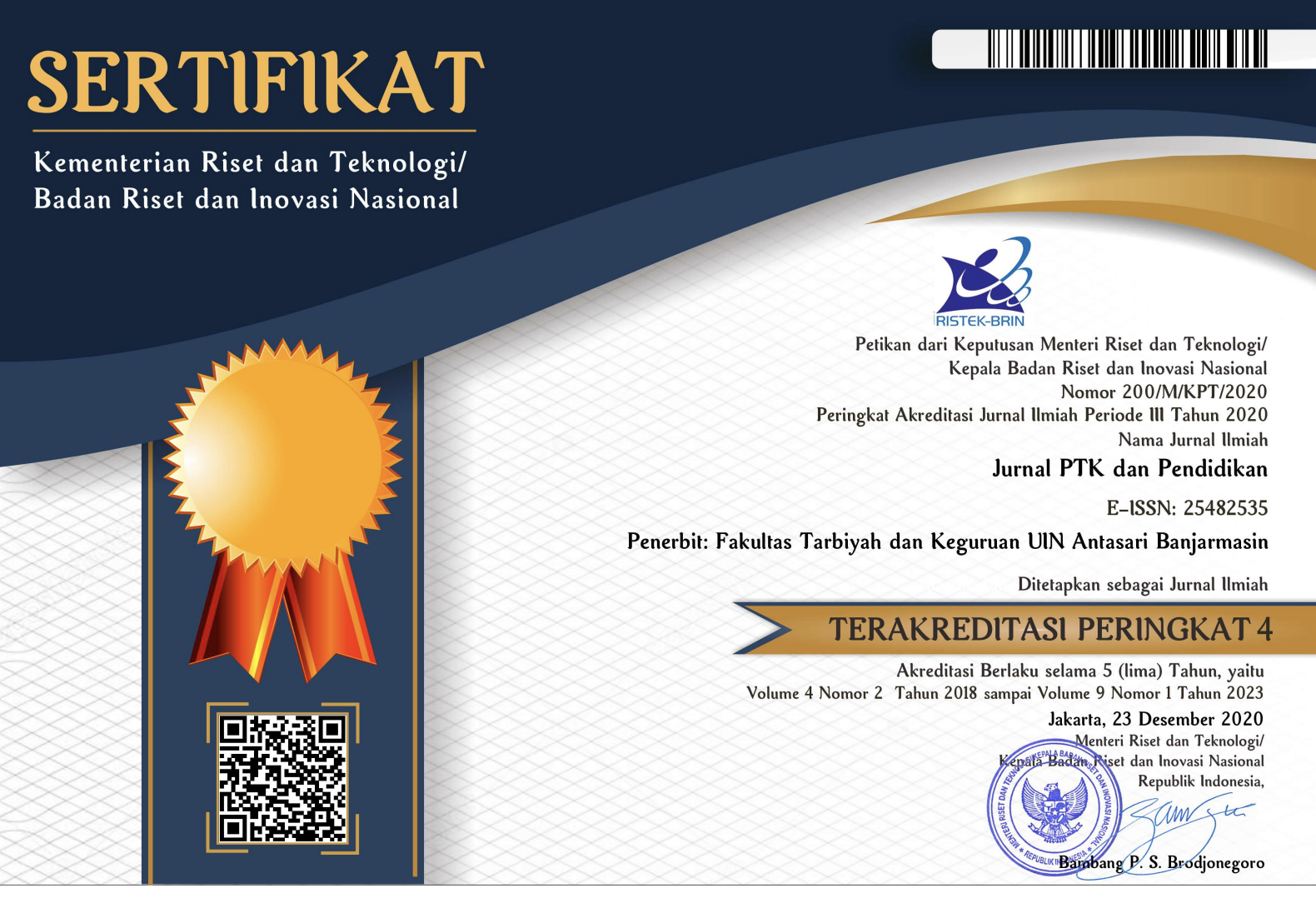REVIEW OF THE LITERATURE ON THE USE OF PROBLEM-BASED LEARNING MODELS IN CHEMISTRY EDUCATION AND THEIR OUTCOMES
DOI:
https://doi.org/10.18592/ptk.v11i1.12850Keywords:
Problem-Based Learning, chemistry learning outcome, Literature reviewAbstract
The instructor must employ a learning model to assist the material's exposition during the teaching process. Poor learning results for students are primarily a result of teacher quality. Where teachers continue to exert much control over the learning process and do not apply cutting-edge teaching techniques. The goal of this study is to conduct a literature review on papers that examine the chemistry learning outcomes using problem-based learning model. This analysis used a total of twenty scholarly publications from Google Scholar between 2020 and 2024. A table listing published scientific articles analyzed in the research data is used as the data presentation strategy. Scientific articles were identified and analyzed to generate a descriptive data analysis technique.Downloads
Published
2025-09-24
How to Cite
Raula Saputri, L., Syahidatul Nisa, L. ., & Rahmawan, S. . (2025). REVIEW OF THE LITERATURE ON THE USE OF PROBLEM-BASED LEARNING MODELS IN CHEMISTRY EDUCATION AND THEIR OUTCOMES. Jurnal PTK Dan Pendidikan, 11(1), 11–24. https://doi.org/10.18592/ptk.v11i1.12850
Issue
Section
Articles
License
Copyright (c) 2025 Legendaria Raula Saputri, Lilis Syahidatul Nisa, Setia Rahmawan

This work is licensed under a Creative Commons Attribution 4.0 International License.
- The right to publication of all journal material published on the Jurnal PTK dan Pendidikan website is held by the editorial board with the author's knowledge (moral rights remain the property of the author).
- The formal legal provisions for access to digital articles of this electronic journal are subject to the terms of the Creative Commons CC BY 4.0 DEED Attribution International (CC BY) license. This license enables reusers to distribute, remix, adapt, and build upon the material in any medium or format, so long as attribution is given to the creator. The license allows for commercial use.
- Printed and electronic published manuscripts are open access for educational, research and library purposes. In addition to these objectives, the editorial board shall not be liable for violations of copyright law.






